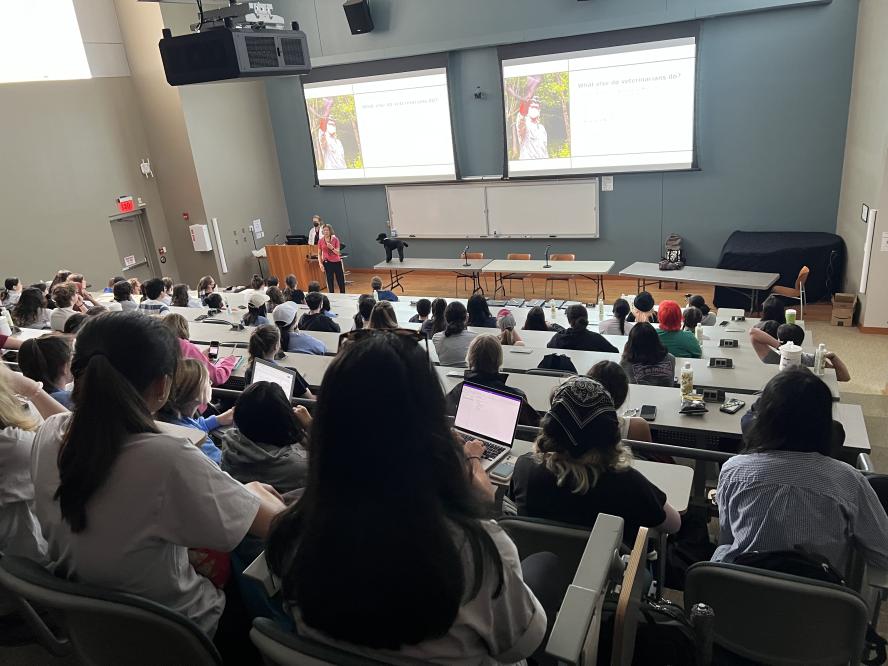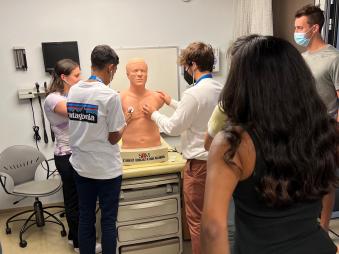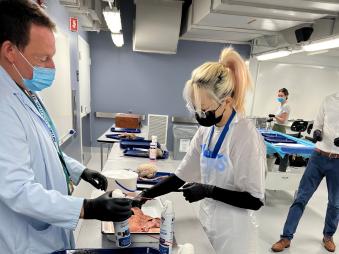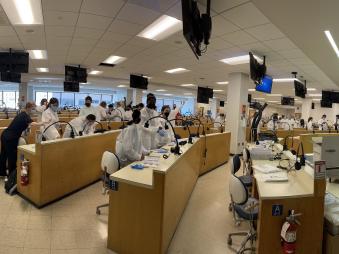-
About
- Departments & Offices
-
Academics
- Public Health
- Biomedical Sciences
- Physician Assistant
- Special Master’s (MBS)
-
Admissions & Financial Aid
- Tuition & Fees
-
Student Experience
-
- Student Resources by Program
- Academic & Student Support
- Wellness & Wellbeing
- Student Life
- Events & Traditions
-
-
Research
- Research Labs & Centers
- Tufts University-Tufts Medicine Research Enterprise
-
Local & Global Engagement
- Pathway & Enrichment Programs
- Global Health Programs
- Community Engagement
Inspiring Future Physicians
Tufts Mini-Med School program lets high schoolers experience and envision what it’s like to study medical science

For two weeks in July, high school students from across the county—and further afield—got to experience what it’s like to be in medical school. Tufts University School of Medicine’s Mini-Med School is an intensive summer program that couples lectures and medical case studies with hands-on training, which lets teens experience and envision what it’s like to study medical science. As stated by Berri Jacque, director of the Mini-Med School program and associate professor of medical education, “the most important part of the program might be the Tufts medical students who act as teaching assistants. They are such amazing role models, and they really connect with the high school students.”
This year marked the first time Mini-Med School was offered as an on-campus program. Ninety rising high school juniors and seniors spent two-weeks living on the Tufts Medford Campus and traveling to the Tufts Boston Campus to run microbiology labs and visit the Clinical Skills and Simulation Center and the Anatomy Lab. Hands-on experiences included dissections, microbiology plating suturing, taking vital signs, ’scrubbing-in’ and other clinical skills.
The program was also offered in a virtual format for the third year. Eighty high schoolers from as far away as Egypt and China, participated in this year’s program. The virtual students participated in the same lectures, medical case studies and microbiology lab as the on-campus program, with the materials for the hands-on lab being mailed to all participants before the start of the program.
Medical case studies are a big part of how medical school curriculum is taught. In the Mini-Med School program students worked in small groups led by the TAs, to review case studies—collectively determining the diagnosis and treatment plans for a patient. Through these case studies, this year’s students learned about several topics including infectious diseases, antimicrobial resistance, asymptomatic infections, zoonotic diseases, and vaccines. The students also worked in small groups to create a capstone project, a video on a health topic.
The goal of the Mini-Med School program is to give students a comprehensive and well-rounded understanding of what it means to go to medical school, meet like-minded peers and develop a sense of belonging in medicine. “It was amazing to see how much the students accomplished in such a short time and to see the bonds students formed with their peers and the TAs. Experiences like Mini-Med School are so important for broadening participation in medicine, and it’s wonderful to see how committed our faculty, staff and medical students are to bringing authentic medical school experiences to high school students,” said Jacque.


